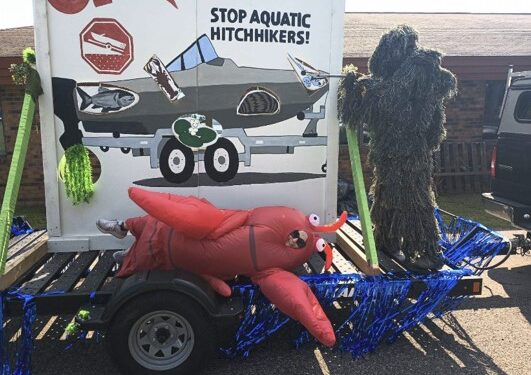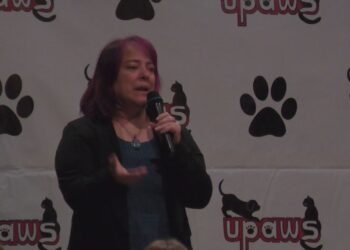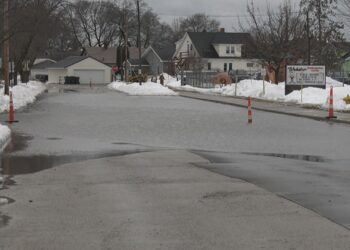KINGSFORD, Mich. (WZMQ) – In the Kingsford Centennial Parade over the weekend, an organization called the Wild Rivers Invasive Species Coalition (WRISC) made an impactful appearance with their educational float. WRISC, which represents five counties in the Upper Peninsula and Northern Wisconsin, used their float to spread awareness of their “Operation Stop Aquatic Hitchhikers” initiative.
The float’s designer cleverly incorporated humor into their message, understanding that a lighthearted approach can grab people’s attention. However, Lindsay Peterson, the coordinator of the organization, emphasized that behind the humor lies a serious concern about the environmental impact of aquatic invasives.
Peterson stressed the importance of prevention when it comes to dealing with invasive species, as some, like zebra mussels, have no known method of removal. Others, such as millefoil, have treatment options available, but they can be costly. Peterson explained, “Once they’re here, they are really hard to eradicate. Especially the aquatic invasives. So especially during the summertime, when it’s peak boating season and people are doing a lot of water recreation, we really like to focus on our ‘Stop Aquatic Hitchhikers’, our ‘Clean Drain, Dry’ messaging, and really educate people about the impact that aquatic invasives can have.” Peterson explained that currently in Dickinson County, Lake Antoine has zebra mussels whereas many of the other nearby lakes do not, adding to the importance of the preventative messaging.
Michigan and Wisconsin law also play a crucial role in preventing the spread of aquatic invasives. These laws require any boat leaving a landing to be drained completely of any water. This measure aims to prevent the transportation of invasive species from one body of water to another.
WRISC considers prevention education and messaging as a significant component of their work and part of their education programs. By participating in events like the Kingsford Centennial Parade, they hope to reach a wider audience and encourage individuals to take the necessary steps to protect their local ecosystems from the threat of invasive species.


















